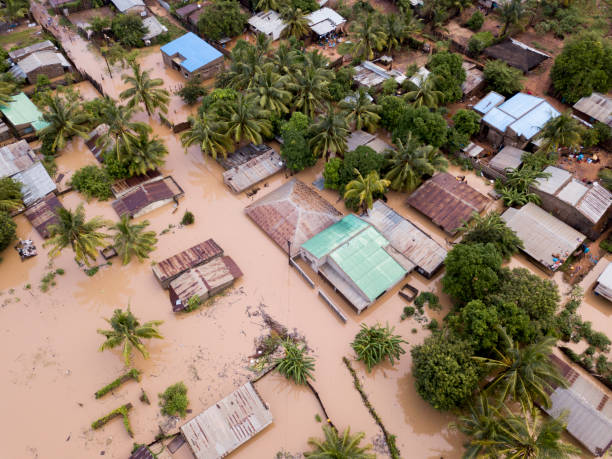Contact us
Contact us

At Advans, we are convinced that the fight against climate change cannot be won without collective mobilization. To achieve its climate strategy, launched in 2022, Advans has focused on one key area with the support from FMO: strengthening the capacities of its teams and stakeholders so they better understand climate change issues, and are able to translate this into concrete actions to build resilience for the clients of microcredit in Africa.
Faced with the growing impact of climate change on its clients, Advans has chosen to make preparedness and adaptation to climate risks a core part of its strategy. But changing practices involves much more than just tools or committee decisions. The entire organization needs to be on board – from management teams to field officers. After a first phase of climate risks analysis conducted in the three pilot affiliates (Advans Cote d’Ivoire, Advans Ghana, Advans Tunisie), the group launched an ambitious climate capacity building program with the valued support of its shareholder FMO. The objective? Ensure that each staff member understands the climate issues in their local context and give them the means to integrate these issues into their daily work to better support clients.

The training program is designed to gradually build awareness and expertise around climate issues. The first step focused on raising awareness through the Climate Fresk workshop.
This collaborative tool was adapted to the Advans context to create a strong level of awareness and engagement. Over 80% of Advans Ghana staff have already participated in the workshop. The training is still being deployed in Tunisia (18% of staff participating so far) and Cote d’Ivoire (7%). Efforts are underway to increase these figures in 2025.
The second phase involved integrating climate issues into subsidiaries’ strategic reflections. Drawing on the climate risk analyses conducted with Horus, I Care developed training contents specifically tailored to the local contexts and Advans operations. The program focused on three specific areas (1) support the identification and integration of climate-related risks into decision-making and daily operations, (2) equip staff with the tools to raise awareness among clients about these risks, and (3) finance climate change adaptation by contributing to the development of financial products and services tailored to the climate challenges faced by Advans’ clients. These capacity building program contents are being gradually rolled out at various levels within the pilot subsidiaries: through strategic workshops with executive committees, technical sessions with experts, and practical training for field staff.
Executive Committees and experts from all three pilot affiliates were trained during field missions in 2024 with 85 people in these groups trained in total. The field staff training sessions are currently being deployed at the same time as new tools to integrate climate risks. For example, 58% of client relationship officers in Ghana and 82% in Tunisia have been trained so far on the new dedicated section on climate risks in the digital loan appraisal form.
Feedback on the training program has been very encouraging. Climate Fresk sessions are described as impactful, accessible, and engaging, with a 97% satisfaction rate so far (127 respondents from Advans Ghana and Advans Tunisie). Executive teams praised the quality and local relevance of the I Care content, as well as the way it supports strategic decision-making. Among operational teams, the content developed with I Care was well received. The use of concrete case studies and situations which reflect daily realities of micro financing in Africa were especially appreciated. Several participants highlighted how helpful it was to better understand the challenges their clients face with the increasing impacts of the climate crisis.
Advans ambition is to train 70% of staff in pilot subsidiaries on climate risks and raising client awareness by the end of 2025. To achieve this, both online and in-person modules are being rolled out, with reinforced support from local training teams. The content is also being integrated into onboarding training for new staff, to ensure climate awareness is embedded as soon as staff join Advans.
Beyond the pilot subsidiaries, the content developed through this program will also be shared at group level with central teams during the 2025 Advans Training Days. Board members from all Advans subsidiaries are also being sensitized on climate issues during group sessions as part of Advans’ broader effort to anchor climate considerations into governance and strategic decisions.
By strengthening internal capacity on climate, Advans is laying the groundwork for tangible benefits for its clients. Better-informed staff will be able to raise awareness amongst clients, guide them in understanding climate risks, and eventually focus on financing climate change adaptation by offering financial products adapted to clients needs. In the long run, this approach aims to support more resilient livelihoods and ensure that even the most vulnerable entrepreneurs and farmers are not left behind in the face of climate change.

FMO supported the launch of Advans’ climate capacity-building programme. As the Dutch entrepreneurial development bank, FMO has been investing in the private sector in developing countries for over 50 years, with a strong focus on sustainable development. Supporting climate resilience and inclusive finance is at the heart of FMO’s strategy, aligned with its commitment to the Sustainable Development Goals, in particular SDG 13 – Climate Action. This programme reflects FMO’s ambition to empower financial institutions and their clients to adapt to the challenges of climate change.
The Climate Fresk, is a French collaborative workshop which raises awareness on the causes and consequences of climate change in the form of a game. The Fresk is objective and based on the IPCC reports, a comprehensive scientific assessment published by the Intergovernmental Panel on Climate Change, summarizing the latest knowledge on climat change, its impacts, risks and potential solutions.